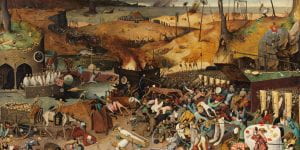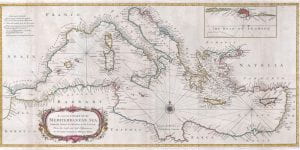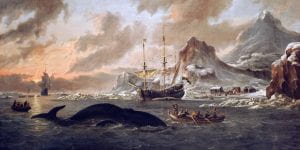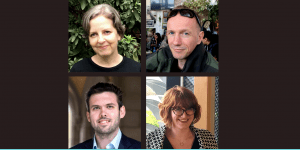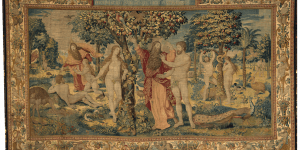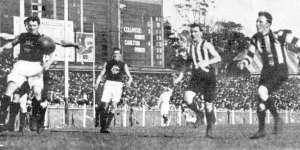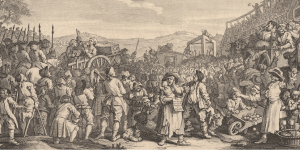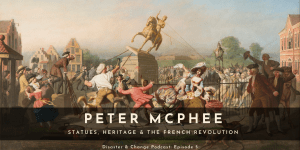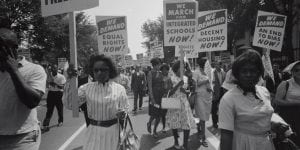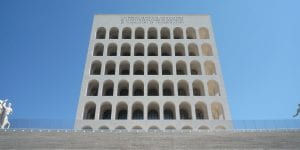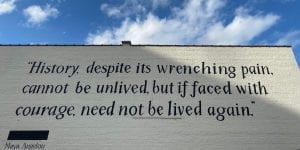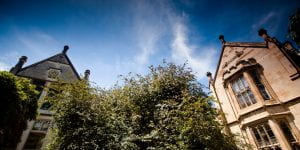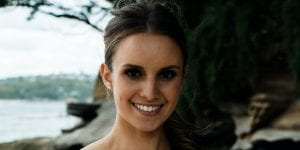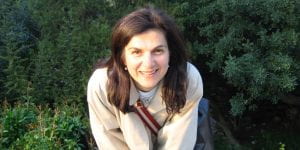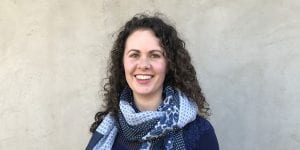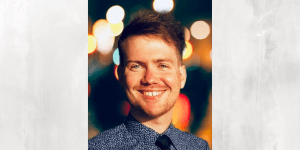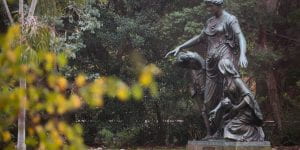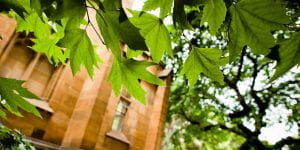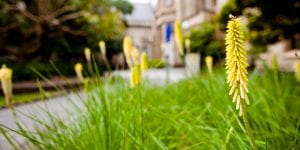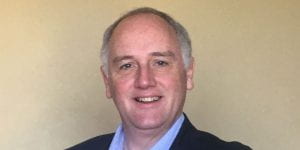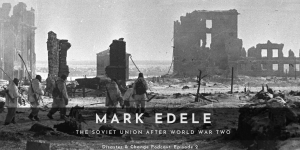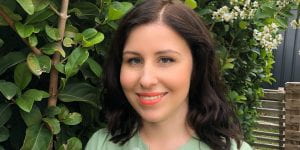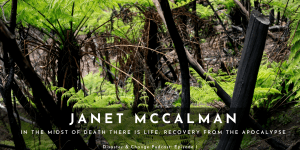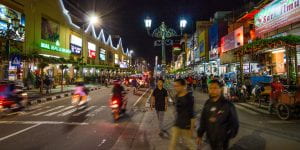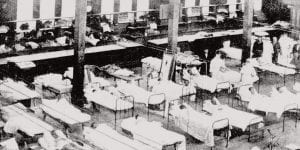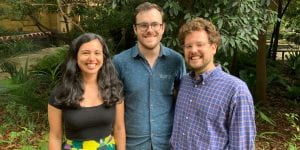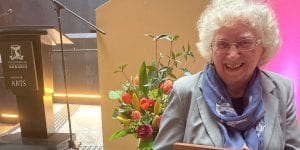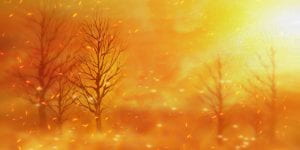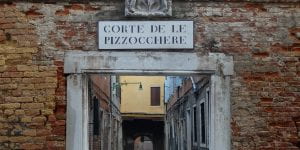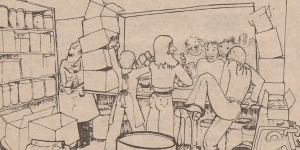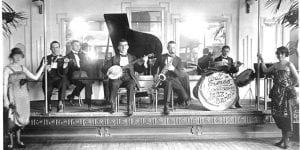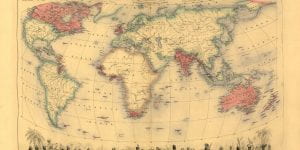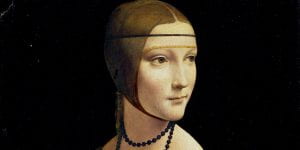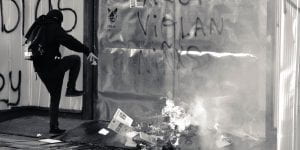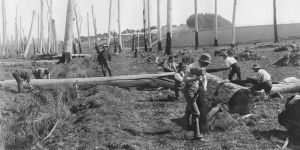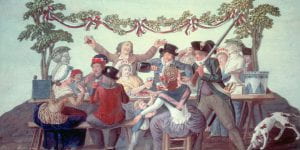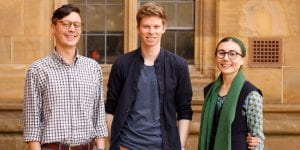Category: History
-
Other Awful Years in History
Around the world, people can’t wait for 2020 to end. COVID-19 has killed close to a million people globally over the course of the pandemic. On top of the coronavirus, there’s been significant floods in Uganda, Kenya, Pakistan and the UK, Australia has experienced devastating bush fires, storms have battered the Americas, and locusts have […]blogs.unimelb.edu.au/shaps-research/2020/09/21/other-awful-years-in-history
-
Pirates or Partners?
Famed as the home of the dreaded Barbary pirates, the ‘scourge of Christendom’, for many early modern Europeans and Britons, the Maghreb was a distant and terrifying place. Some, however, saw the corsairing states as legitimate military rivals, potential trading partners or allies, and even attractive places for migration and personal advancement. Recently, History PhD […]blogs.unimelb.edu.au/shaps-research/2020/09/08/pirates-or-partners
-
Exploring the History of Whales and Whaling
A number of our graduates go on to pursue careers in the GLAM sector – that is, Galleries, Libraries, Archives & Museums. Charlotte Colding Smith completed a PhD in History in 2010, and has gone on to work at a number of institutions and museums internationally. She is a Senior Expert Fellow at the German […]blogs.unimelb.edu.au/shaps-research/2020/09/04/exploring-the-history-of-whales-and-whaling
-
Body-makers and Farthingale-makers in Seventeenth-century London
By 1700 tailors no longer dominated England’s garment marketplace, as stay-makers, mantua-makers and seamstresses began to produce key items of female dress previously made by tailors. The demise of the tailoring monopoly was a complex process that involved many factors. On 3 September, our McKenzie Fellow, Sarah Bendall, presented the weekly Brown Bag talk, which […] -
The Bishop with 150 Wives
Francis Xavier Gsell is famous for his work among the Tiwi people, from whom he purchased the marriage rights to young women as part of a broad evangelisation strategy. A mythic figure in popular histories of the Northern Territory, Gsell is often remembered as the apocryphal ‘Bishop with 150 Wives’. But Gsell’s complex legacy has […]blogs.unimelb.edu.au/shaps-research/2020/08/17/the-bishop-with-150-wives
-
“Ffor Whalebones to it”: The Baleen Trade and Fashion in Sixteenth-century Europe
During the sixteenth century the bodies of Europe’s elites began to change in size and form as men and women adopted wide starched ruffs and collars, ballooning sleeves, stiffened or bombast upper garments and puffy lower garments. Such a structured silhouette set the tone for centuries of fashion and was the result of changing artistic […]blogs.unimelb.edu.au/shaps-research/2020/08/17/ffor-whalebones-to-it
-
The Inaugural SHAPS Optimus Awards
In 2019 SHAPS Head of School Professor Margaret Cameron launched a new set of annual awards. Through the Optimus Awards, SHAPS will recognise and celebrate members of our community who exemplify one or more of the values articulated in the Faculty of Arts Strategy Map 2019–2025. All members of the School community, including undergraduate and […]blogs.unimelb.edu.au/shaps-research/2020/08/14/the-inaugural-shaps-optimus-awards
-
Meet the 2020 Hansen PhD Scholar Cat Gay
The Hansen Trust, established to advance the study of History at University of Melbourne, includes an annual PhD scholarship to the doctoral program in History in SHAPS. The 2020 recipient, Cat Gay, is working to uncover the life stories and experiences of girls in nineteenth-century Victoria through the study of the material culture that they […]blogs.unimelb.edu.au/shaps-research/2020/08/12/cat-gay-hansen-phd-scholarship-holder-2020
-
Is This the Earliest Depiction of a Dodo in Art?
The Jagiellonian arrases – tapestries that decorate the walls of Wawel Castle in Poland – may be one of the earliest known artistic representation of the long-extinct dodo. SHAPS Principal Research Fellow Dr Darius von Güttner tells us more in this fascinating article republished from Pursuit. This month marks 500 years since the birth of […]blogs.unimelb.edu.au/shaps-research/2020/08/07/is-this-the-earliest-depiction-of-a-dodo-in-art
-
Sport, Community and Everyday Life: World War One and COVID-19 Compared
For many Australians, the economic pain brought by the COVID-19 crisis has been compounded by the disruption caused to sporting activities. For football-loving Melburnians, the very rhythm of the week was rendered unrecognisable after the temporary suspension of the 2020 AFL season in March. The closing down of sports at the local community level has […]blogs.unimelb.edu.au/shaps-research/2020/07/31/sport-community-everyday-life
-
What Today’s News Has in Common with Early Execution Ballads
Violence, corruption and murder dominate our modern headlines, but little has changed since execution ballads were sung in sixteenth-century Europe. In this article, republished from Pursuit, Lisa Needham talks to Dr Una McIlvenna from SHAPS about the similarities between headlines of today and the early modern period. Since the start of 2020, it’s felt like […] -
Confronting the History of Race and Empathy in the Classroom: A Conversation with Dr Sarah Walsh
In June 2020, Dr Sarah Walsh joined the History Program as our new Hansen Lecturer in Global History. In this new podcast, in conversation with History PhD candidate Amy Hodgson, Dr Walsh discusses her research, and her approach to teaching. The interview traverses a wide range of topics, including the challenges posed by online teaching, especially when it comes to handling difficult and confronting histories of oppression and violence. What approaches can be used to foster empathy and kindness in the classroom? What methods can researchers working on these topics use in order to take care of their own mental health and wellbeing? And what are some useful starting points for people who want to educate themselves about issues around race and racism? -
Episode 5 in the SHAPS Podcast Series: Professor Peter McPhee
Societies have always used statues and other monuments as ways of recognising power and eminence. In Australia, as in many other places, there is currently public debate over whether some statues should be removed, who should make the decision, and what should be the fate of the statues themselves. Should they be displayed with explanatory plaques, taken away to be preserved in museums or simply removed? Such debates are common in history. In this episode, Professor Peter McPhee surveys the wide range of objects destroyed during the French Revolution – from buildings and statues to books and paintings – but also the remarkable responses of revolutionary governments. It concludes with some reflections about the place of monumental statues and heritage sites in Australia.blogs.unimelb.edu.au/shaps-research/2020/07/06/disaster-change-5
-
Race, Change and Time in the USA
Americans are reaching back into history to try to understand why progress on racial equality has been so heartbreakingly slow. In this article, republished from Pursuit, Professor David Goodman explores the question. Many commentators have compared or rejected comparison between the current public protests sparked by the death of George Floyd in the USA and the uprisings […]blogs.unimelb.edu.au/shaps-research/2020/07/03/race-change-and-time-in-the-usa
-
A New Look at the History of Fascism
For decades, third-year undergraduate History students at Melbourne have taken the subject Hitler’s Germany (HIST 30010). From Semester Two 2020, the subject will be expanded to cover the history of European fascism more broadly, reflecting the expertise of the subject coordinator, Dr Ángel Alcalde, who joined the History program in 2019 as Lecturer in Twentieth-century European History. […]blogs.unimelb.edu.au/shaps-research/2020/06/22/a-new-look-at-the-history-of-fascism
-
Racial Justice, Memory & the Museum
In December 2019, History PhD candidate Sam Watts travelled through the Deep South completing research for his thesis on racial politics in the Reconstruction-era urban Deep South. Here he reflects on this trip, historical memory, the nationwide protests following the murder of George Floyd, and the ongoing struggle for racial justice in America. The day […]blogs.unimelb.edu.au/shaps-research/2020/06/09/racial-justice-memory-the-museum
-
Andrew Black
Andrew Black, ‘The Victorian Farmers’ Union, Country, and National Party, 1916-2000: Survival, Adaptation, and Evolution‘ (PhD in History, 2020) This thesis undertakes a detailed analysis of the Country-National Party in Victorian state politics from its formation as the Victorian Farmers’ Union during the First World War through to the defeat of the Kennett Liberal-National Coalition […] -
Stephen Campbell-Wright
Stephen Campbell-Wright, ‘Point Cook: The Crucible of Air Force Capability in Australia’ (PhD in History, 2020) This thesis argues that place can have an influence on cultural heritage. A site can have a profound effect on the cultural heritage of a community or institution through the influence it exerts on public memory and sense of […]blogs.unimelb.edu.au/shaps-research/2020/06/08/stephen-campbell-wright
-
Rhys Cooper
Rhys Cooper, ‘The Transformation of Australian Military Heroism during the First World War’ (PhD in History, 2020). This thesis examines how Australian heroism was defined and represented during the First World War. I present an in-depth analysis of two sets of primary sources: Victoria Cross (VC) medal citations and Australian wartime newspapers. Victoria Cross citations […] -
Rebekah Currer
Rebekah Currer, ‘Dissent, Discussion and Dissemination: The Strategies of the Kensington Society in the mid-Victorian Women’s Movement’ (PhD in History, 2020) This thesis investigates the strategic communication of mid-nineteenth century British feminism through the activism and networking of the Kensington Society (1850–1890). Collectively and individually, the 68 members of Britain’s first female-only discussion society practised […]blogs.unimelb.edu.au/shaps-research/2020/06/07/rebekah-currer
-
Kate Davison
Kate Davison, ‘Sex, Psychiatry and the Cold War: A Transnational History of Homosexual Aversion Therapy, 1948–1981′ (PhD in History, 2020) Aversion therapy was a method of ‘treatment’ for sexual ‘deviation’ adopted by some psychiatrists and psychologists in the decades following the Second World War. There were several variations of the procedure, but most involved subjecting […] -
Spiridoula Demetriou
Spiridoula Demetriou, ‘Imagining Modern Greece: Mesologgi, Philhellenism and Art in the 19th century’ (PhD in History, 2020) Renowned as the site of Byron’s death, and the centre of war operations in western mainland Greece during the Greek War of Independence [1821–1832], Mesologgi duly became a focus of Philhellene propaganda in the revolt against Ottoman rule. […]blogs.unimelb.edu.au/shaps-research/2020/06/07/spiridoula-demetriou
-
Gretel Evans
Gretel Evans, ‘Through Fire and Flood: Migrant Memories of Displacement and Belonging in Australia’ (PhD in History, 2020) Natural disasters are a significant feature of the Australian environment. In a country with a rich history of immigration, it is therefore surprising that historians have not yet examined the specific challenges faced by immigrants within this […] -
Michael Francis
Michael Francis, ‘”The Bishop with 150 Wives“: Interrogating the Missionary and Ecclesiastical Career of Monsignor Francis Xavier Gsell MSC (1872–1960)’ (PhD in History, 2020). This thesis provides the first comprehensive scholarly investigation into the missionary and ecclesiastical career of Monsignor Francis Xavier Gsell MSC (1872-1960). Remembered as the apocryphal ‘Bishop with 150 Wives’, Gsell is […]blogs.unimelb.edu.au/shaps-research/2020/06/06/michael-francis
-
Daniel Hannington-Pinto
Daniel Hannington-Pinto, ‘The Social and Moral Campaigning of Australian Trade Unions, 1960s to 2015’ (PhD in History, 2020) Although wages and working conditions have long been their ‘bread and butter’, trade unions have frequently campaigned on broader social and moral issues. In the Australian context, however, the labour history literature remains relatively silent on these […]blogs.unimelb.edu.au/shaps-research/2020/06/04/daniel-hannington-pinto
-
Phoebe Kelloway
Phoebe Kelloway, ‘Three Major Industrial Disputes 1928–30, Rank-and-File Action and the Communist Party of Australia’ (Phd in History, 2020) At the start of the Depression in Australia, workers in three industries waged determined struggles against significant cuts to their wages and conditions: waterside workers in 1928, timber workers in 1929, and coalminers of the NSW […]blogs.unimelb.edu.au/shaps-research/2020/06/04/phoebe-kelloway-2
-
Daniel Nott
Daniel Nott, ‘Talking Sense to the American People: The Appeal of Adlai Stevenson in the McCarthy Era’ (MA in History, 2020) The purpose of the thesis is to investigate the enduring popularity of Adlai Stevenson with the liberal elements of the Democratic Party during the 1950s. This is worth investigating as he was the overwhelming […] -
John Whitehouse
John Whitehouse, ‘History Teaching as Conversation’ (PhD in History, 2020). The ability to engage in historical reasoning is fundamental to an education in history. What are the implications for educators? This thesis uses Greek and Roman historiography to discuss the learning and teaching of history. It offers a synthesis of two leading approaches to historical […]blogs.unimelb.edu.au/shaps-research/2020/06/01/john-whitehouse
-
Chinese-Australian Perspectives on the Pandemic: A Personal Reflection
History PhD candidate Luke Yin was on a research trip to China when the news of the COVID-19 outbreak was first made public. Returning to Melbourne in February 2020, he has been in a position to witness the pandemic from both Chinese and Australian perspectives. In this piece, he shares his reflections on how these […]blogs.unimelb.edu.au/shaps-research/2020/05/29/chinese-australian-perspectives-on-the-pandemic
-
Episode 2 in the SHAPS Podcast Series: Professor Mark Edele
Does an unplanned and large-scale calamity – a war, say, or a global economic crisis – lead to lasting social, cultural, and political change? This podcast explores this question with regard to the Soviet Union and World War II. The calamity of the war had a devastating impact on Soviet society, on the Soviet economy, […]blogs.unimelb.edu.au/shaps-research/2020/05/11/disaster-change-2
-
Meet Dr Sarah Bendall, McKenzie Fellow in History
In 2020, Dr Sarah Bendall joined the History program as a McKenzie Postdoctoral Fellow. A historian of material culture, Sarah specialises in the dress of sixteenth- and seventeenth-century England, Scotland and France. Sarah completed her PhD at the University of Sydney in 2018 and joins us after a post-doctoral fellowship at UWA working on the […]blogs.unimelb.edu.au/shaps-research/2020/05/08/meet-sarah-bendall
-
Professor Janet McCalman Opens Our New Podcast Series
We are excited to announce the launch of the SHAPS Podcast Series, with this inaugural episode, presented by Professor Janet McCalman, Redmond Barry Distinguished Professor in the Melbourne School of Population Health, and introduced by Professor Margaret Cameron, Head of SHAPS. Since 2015, our annual themed public lecture series has been a flagship event on […]blogs.unimelb.edu.au/shaps-research/2020/05/01/disaster-and-change-1
-
A Journal of the Plague Year: An Archive of COVID19
The Melbourne History Workshop in SHAPS has launched the Melbourne node of ‘A Journal of the Plague Year: An Archive of Covid19’, in collaboration with our friends at Arizona State University, who initiated the project on 13 March 2020. MHW are encouraging everyone to document how COVID19 has affected their lives. Share your story in […]blogs.unimelb.edu.au/shaps-research/2020/03/27/a-journal-of-the-plague-year-an-archive-of-covid19
-
Becoming a Transnational Scholar of Southeast Asia
In 2019, Caitlin Ryan (Masters of International Relations) and Hillary Mansour (Combined Honours in History and Indonesian Studies), and Michael Anderson (Honours in History) spent a week at Gadjah Mada University (UGM) in Yogyakarta, Indonesia, together with students and academics from universities across Asia, Europe and the Middle East. In this article, they tell us […]blogs.unimelb.edu.au/shaps-research/2020/03/24/becoming-a-transnational-scholar-of-southeast-asia
-
Announcing the 2019 Issue of Chariot Undergraduate History Journal
The History program is excited to announce the publication of the second issue of the annual undergraduate History journal, Chariot, a student-run initiative that was launched in 2018, as part of the revitalisation of History enabled by the Hansen Gift. We applaud our students’ energy and enthusiasm, and the hard work and creativity that they’ve […] -
Were These the Good Old Days? The 1919 Flu Pandemic in Australia
As we watch the global COVID-19 pandemic unfold, some scholars are looking back to the history of the worldwide influenza pandemic of 1918 to 1920. Mary Sheehan, PhD student in SHAPS, discusses the experience of those events 100 years ago in Australia, in this blog post, republished from Living Histories. Watching the rapid spread of […]blogs.unimelb.edu.au/shaps-research/2020/03/15/were-these-the-good-old-days
-
Listening Across Boundaries: The Greg Dening Memorial Lecture 2019
Emeritus Professor Greg Dening (1931–2008) occupies an important place in the history of the History program at the University of Melbourne. As Tom Griffiths put it: “Greg was not only a wonderful historian but also a gifted teacher, and he believed that immersion scholarship could be transformative — of oneself, and also of the world […]blogs.unimelb.edu.au/shaps-research/2020/02/25/greg-dening-lecture-2019
-
Pioneer, Innovator, Mentor: Reflections on Pat Grimshaw’s Influence and Legacy
In December 2019, Professor Emeritus Patricia Grimshaw was awarded the University of Melbourne’s T.G. Tucker Medal. Named after the first Dean of Arts at the University, Thomas George Tucker, the Medal is awarded for outstanding academic achievement and contributions to the Faculty of Arts in the areas of teaching and learning, research, engagement and leadership. […]blogs.unimelb.edu.au/shaps-research/2020/02/17/pioneer-innovator-mentor
-
Our Savage History of Fighting Bushfires
This Australian summer brought with it devastating bushfires affecting many communities around the country. In Victoria, the bushfire season is frequently at its peak in February, but this summer has seen severe fires burning out of control much, much earlier. The hot northerly winds scorched parks and gardens, bringing soaring temperatures which all added to […]blogs.unimelb.edu.au/shaps-research/2020/02/13/our-savage-history-of-fighting-bushfires
-
Exploring Venice’s Past and Present
From September to December 2019, History postgraduate researcher Jennifer McFarland was based in Venice as one of two Australasian Centre of Italian Studies (ACIS)-Save Venice research fellows at Save Venice Inc.’s Rosand Library and Study Centre. The fellowship supported archival research for her Master’s thesis, which focuses on the visibility and social role of pizzochere, […]blogs.unimelb.edu.au/shaps-research/2020/01/28/exploring-venices-past-and-present
-
Under No Management, Since 1976: A History of the University of Melbourne Food Co-op
For her final-year capstone project, History major Claire Hannon decided to investigate the origins of a longstanding student institution: the University of Melbourne Food Co-op, established in 1976. What had driven the Food Co-op’s founders? And how might the history of the Food Co-op help to inspire new forms of student activism today? Claire’s project […] -
Researching Masculinities and Violence Against Women: An Interview with Dr Shane Tas
After completing a PhD in History in 2019, Dr Shane Tas went on to become Senior Policy Advisor, Masculinities at Our Watch. In this capacity he acted as project lead and author of a major report, Men in Focus: Unpacking Masculinities and Engaging Men in the Prevention of Violence Against Women, launched in November 2019. […]blogs.unimelb.edu.au/shaps-research/2020/01/09/researching-masculinities-and-violence-against-women
-
Protecting Australian Women from American Jazz: The Hidden Aim of the 1927 Tariff Inquiry
The 1927 Tariff Board inquiry into the import duty on gramophone records coming into Australia was about more than industry protection. In fact the piano roll industry, which might be expected to be the one most concerned about the impact of imported records, wasn’t particularly worried. But others were. Henry Reese, SHAPS PhD graduate, explores […] -
Uncovering Connections in Britain’s Empire: An Interview with Professor Zoë Laidlaw
Upon finishing her Honours at Melbourne, Zoë Laidlaw went on to complete her postgraduate degree at Oxford. After 20 years in the United Kingdom, she returned to the University of Melbourne in September 2018. PhD candidate Jonathan Peter spoke to Zoë recently about her experiences as an academic, her research interests, as well as current […] -
The Remarkable Journey of Leonardo’s Inscrutable Masterpiece
Leonardo da Vinci’s portrait of Cecilia Gallerani, known as the Lady with an Ermine, is one of Poland’s national treasures, but the painting has had an extraordinary history. Dr Darius von Güttner, Principal Fellow (Honorary) in SHAPS, tells us more in an article republished from University of Melbourne’s Pursuit. Over a decade ago the Czartoryski […] -
We live in a world of upheaval. So why aren’t today’s protests leading to revolutions?
We live in a world of violent challenges to the status quo, from Chile and Iraq to Hong Kong, Catalonia and the Extinction Rebellion. These protests are usually presented in the media simply as expressions of rage at ‘the system’ and are eminently suitable for TV news coverage, where they flash across our screens in […] -
Sri Lanka Election: Will the Country See a Return to Strongman Politics?
Sri Lanka’s presidential election on Saturday comes at a critical time for the country. The government has been in turmoil since President Maithripala Sirisena sacked the prime minister last year and replaced him with former strongman Mahinda Rajapaksa, a move that sparked a three-month constitutional crisis. Then came the Easter bombings this year that killed […] -
A German Solution to an Australian Problem? 1890s Unemployment and the Leongatha Labour Colony
After Volkhard Wehner was awarded a PhD in 2017 for his thesis on the history of Victoria’s German-speaking community (1850–1930) he soon realised that after completing that milestone, life does not suddenly end. Rather, it opens up countless new possibilities. After reflecting on the transition from the pressures and intensity of the PhD experience, he […] -
Living the French Revolution: A Symposium in Honour of Peter McPhee
The most significant event in French revolutionary studies ever to be held in Australia took place on 9 and 10 July 2019 at the University of Melbourne. Fourteen distinguished international scholars, along with their Australian counterparts, contributed to a symposium in honour of the great historian of France, Emeritus Professor Peter McPhee AM. Their presence […] -
Hansen Trust PhD Scholarship in History
From 2015, the extraordinary Hansen Gift — the largest ever made to a History program in Australia — has transformed the teaching of History at the University of Melbourne. One strand of the initiatives funded by the Gift is an annual Hansen Trust PhD Scholarship in History. Applications for next year’s round are currently open, […]blogs.unimelb.edu.au/shaps-research/2019/10/09/hansen-trust-phd-scholarship-in-history
Number of posts found: 260
